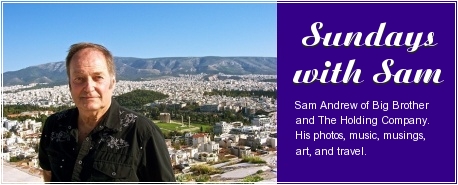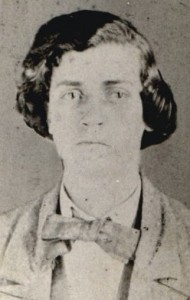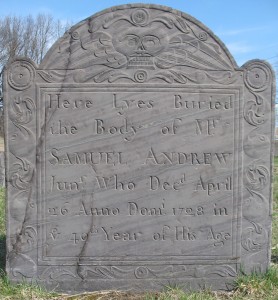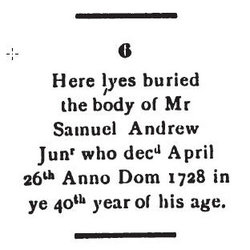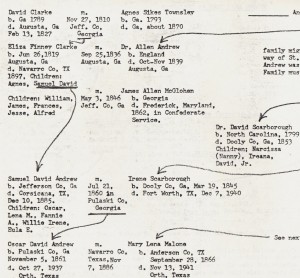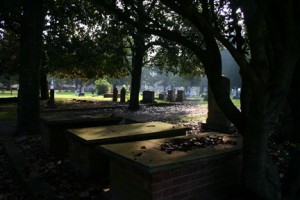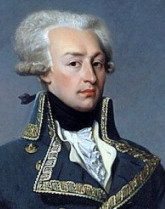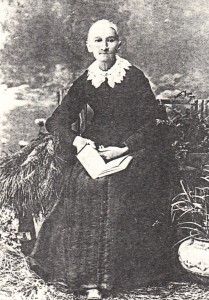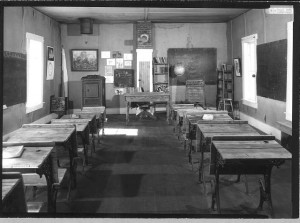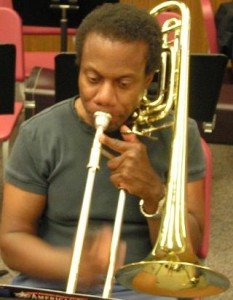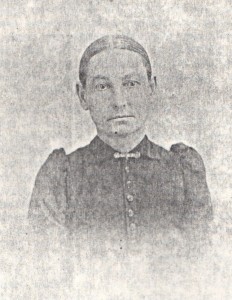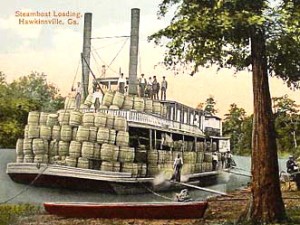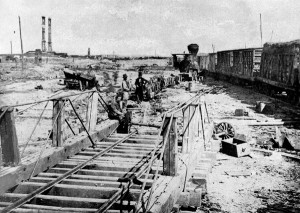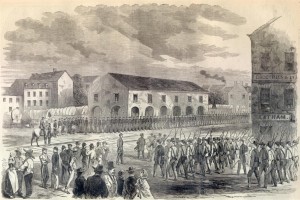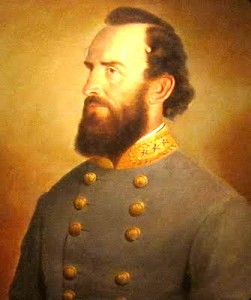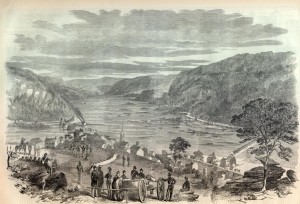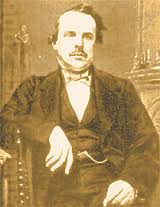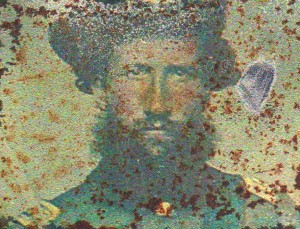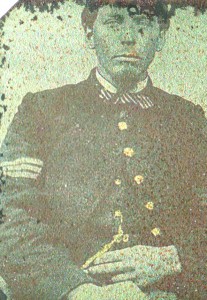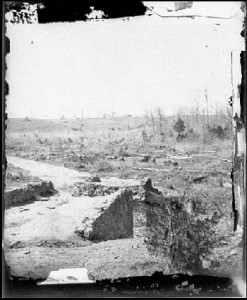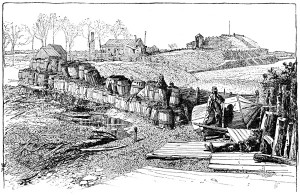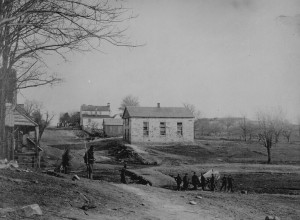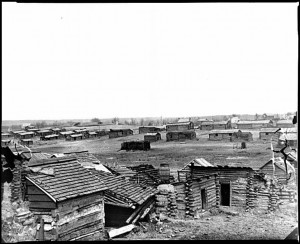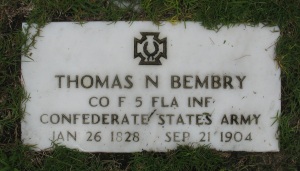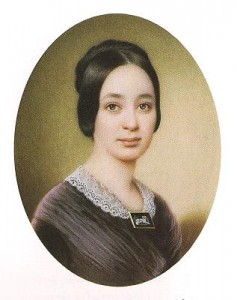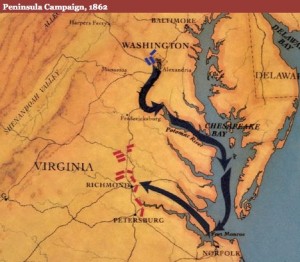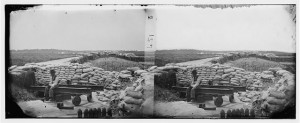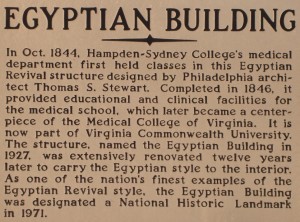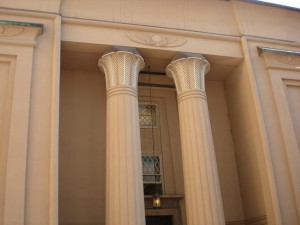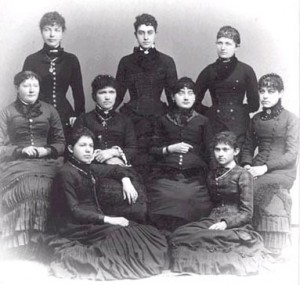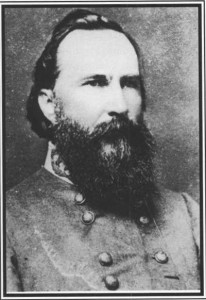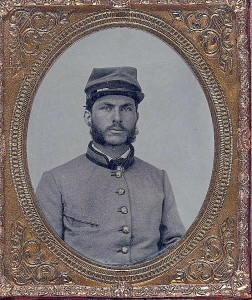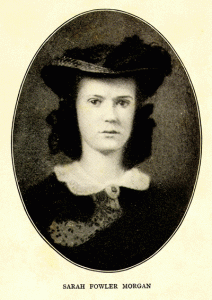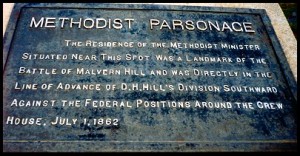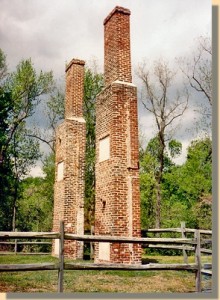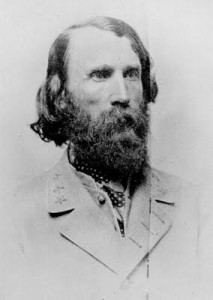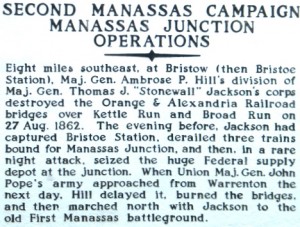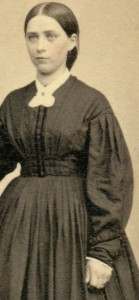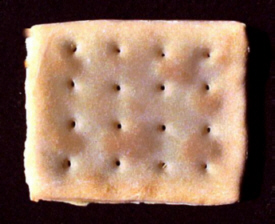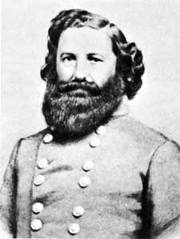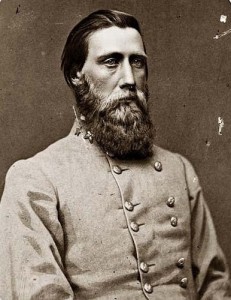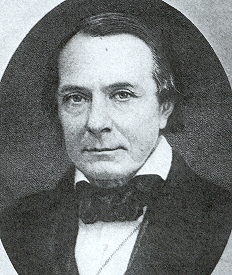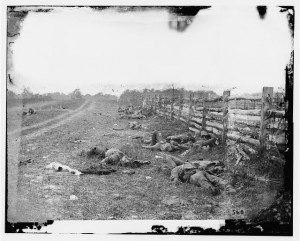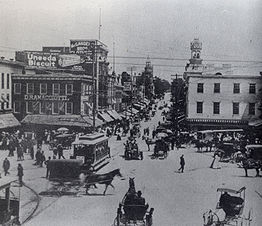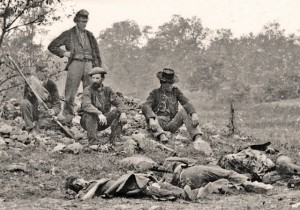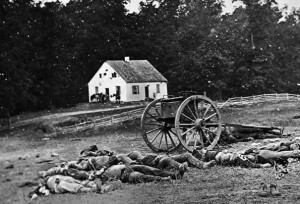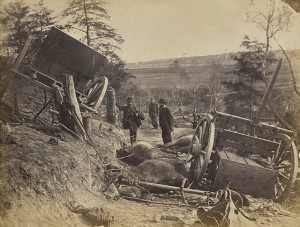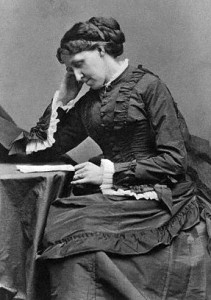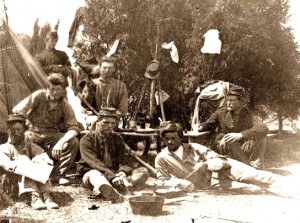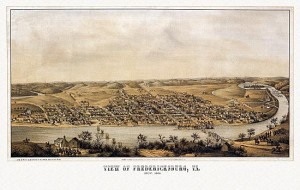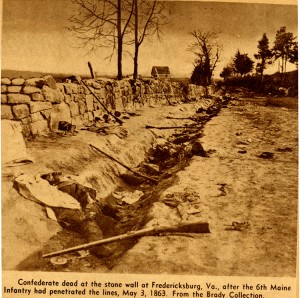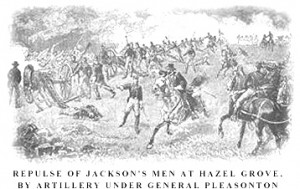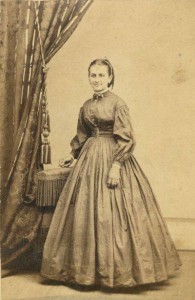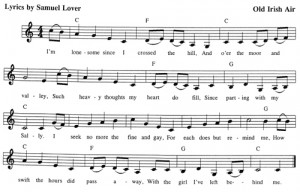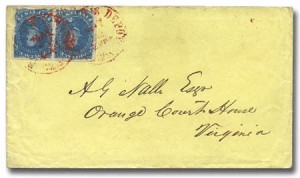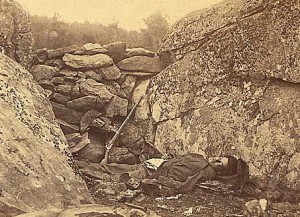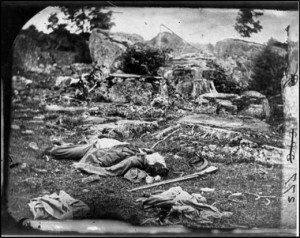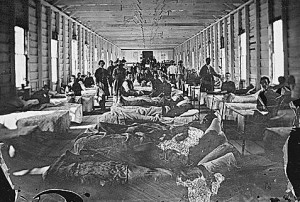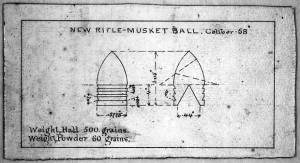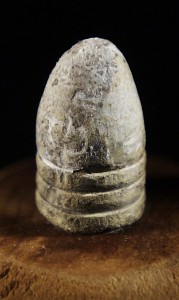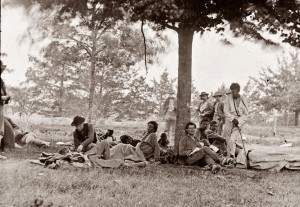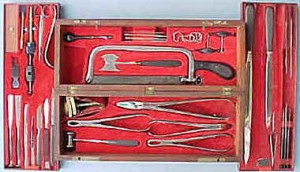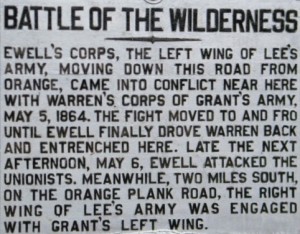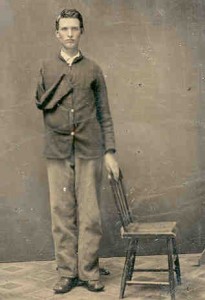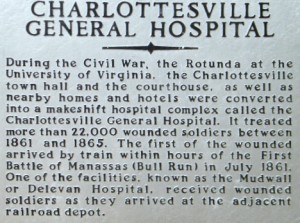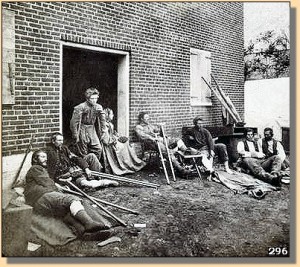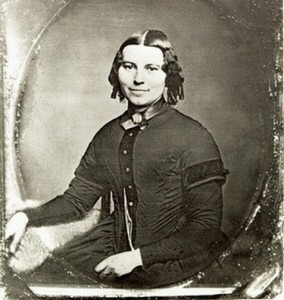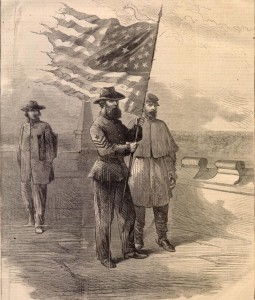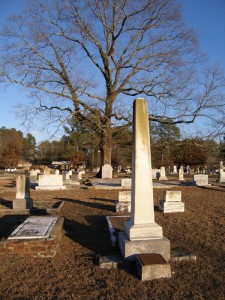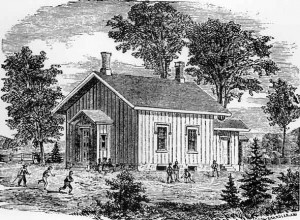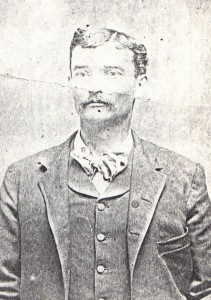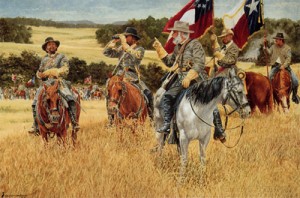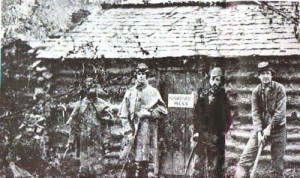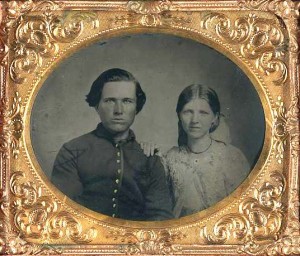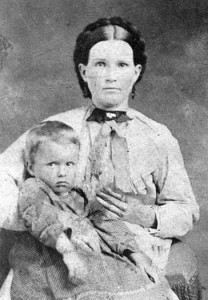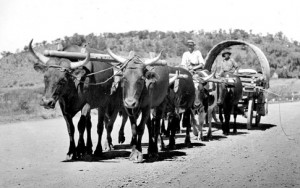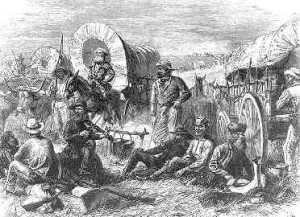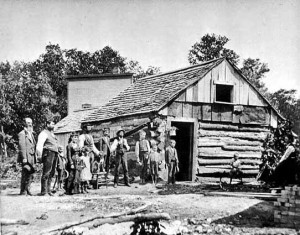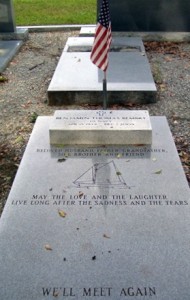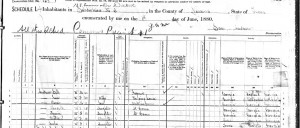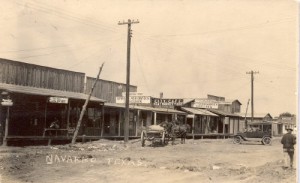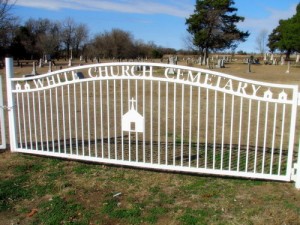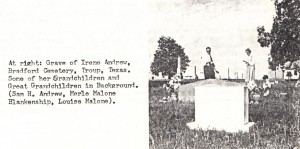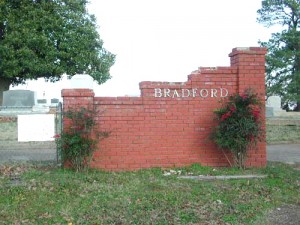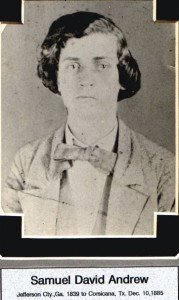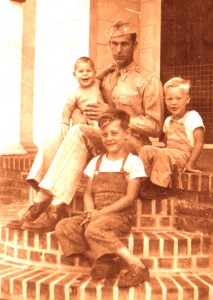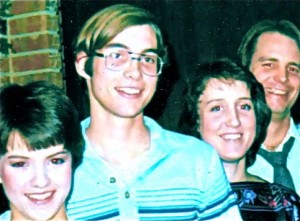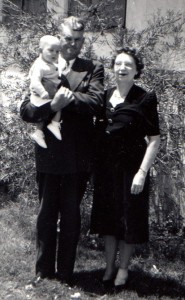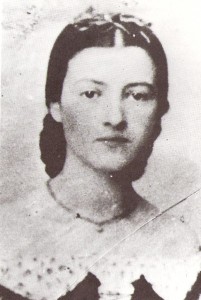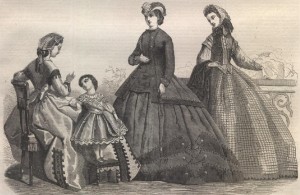5 February 2012
History, biography, memoirs are fictions that we construct to bring order out of this chaotic, complicated reality called life.
Samuel David Andrew, born 1839 in Jefferson County, Georgia. Died 1885, Corsicana, Texas.
Sam Andrew is an old name in our family. It dates from at least the eighteenth century and probably long before.
Jane Andrew and her son Samuel lived in Jefferson County, Georgia (1802-1822), where Samuel David Andrew lived for much of his life, so it seems very likely that they were his great grandmother and grandfather.
Part of the Andrew lineage.
Eliza Finney Clarke married Allen Andrew, an English born physician, on 25 September 1836 in Augusta, Georgia. Allen died on 11 September 1839, in the terrible yellow fever (cholera) epidemic. He was only 22 and he came to Georgia from New York. Allen Andrew was buried in the Magnolia Cemetery, Augusta. Eliza and Allen’s son Samuel David was born only a few months after his father’s death.
Magnolia Cemetery.
Samuel David Andrew’s mother Eliza Clarke met America’s benefactor, the Marquis de Lafayette when she was seven. Her parents served on a welcoming committee for Lafayette when he visited Augusta in 1826, and Eliza had sharp memories of crying because she could not shake the hand of the general, being “only” a child at the time.
Eliza Finney Clarke Andrew (1819-1897), Sam Andrew’s mother.
Samuel Andrew was the son of a physician and he married the daughter of a physician, Ireana (Irene, Rena) Scarborough on 21 July 1860. Irene’s father was Dr. David Scarborough and her mother was Penelope Louisa Bembry. Sam met Irene because he was a tutor to her brother David Scarborough, Junior. Sam was well educated for his time, and he taught school both before and after he was married.
Through Irene Scarborough Andrew, I am related to most of the Scarboroughs in Georgia, and to all of the Bembrys.
To Kevin Bembry…
To Amber Bembry…
Irene Scarborough Andrew in 1880, Penelope Louisa Bembry’s daughter and Sam Andrew’s wife.
The first year that Sam and Irene were married, there was talk of war with the North. All the young hotspurs in Georgia were anxious to join the army. Sam went to Hawkinsville, Georgia, and enlisted on 16 May 1861 to become a private soldier in the Pulaski County Volunteers commanded by Dr. T.D. Lawrence Ryan, soon to leave for Virginia in May 1861.
Hawkinsville, Georgia, steamboat landing.
Sam stayed behind a while to make sure his young pregnant wife was taken care of, and rejoined the Volunteers in Winchester, Virginia, June 1861. His outfit had been busy. Assigned to General Joseph E. Johnstone’s Shenandoah Valley Command, they marched to Harpers Ferry late in May and helped Thomas Jonathan Jackson take a good quantity of military supplies back to Winchester. The taking of all this ordnance and even some railroad locomotives was a boon for the Confederate Army. This feat helped T. J. (Stonewall) Jackson become a brigadier general.
Winchester, Virginia.
Thomas Jonathan Stonewall Jackson.
Harpers Ferry at the confluence of the Potomac and Shenandoah rivers in the long, beautiful Shenandoah Valley, higher at the southern end, lower towards the north. Thus, marching “up the valley,” was to travel southward.
The Pulaski Volunteers were absorbed into the main army and renamed Company G, 8th Georgia Volunteer Infantry, commanded by Francis Bartow, a Savannah attorney and politician, later killed in action at Manassas. He was the first brigade commander to die in the war.
My wife Elise owns several daguerrotypes and tintypes from this time.
First Manassas (Bull Run) 21 July 1861
Company G was not yet fully trained when they received orders to march to Manassas Junction which was quite a distance over the Blue Ridge from Winchester. The Company left so soon that Sam Andrew and a few other men did not even have enough time to retrieve their laundry. About ten in the morning on 20 July 1861, Sam became one of the first Confederate soldiers to be under fire at the stone bridge over Bull Run. He received a bullet nick on his musket. (Much of the equipment dated from the Revolutionary era.)
The action at Manassas showed both sides that this war was not going to be over any time soon. Now there was a long wait for spring.
Sam wrote home from winter quarters in Centreville, Virginia. (He spelled it Centerville.)
Camped at Centerville, October 20, 1861
My Dearest Darling Wife,
Today the twentieth day of October I seat myself to answer your dear welcome letter of the 6 inst. Oh Dolly the pleasure that it affords me to get one of these letters from you is indescribable, the lingering uneasiness of the hours are swept away by them as by some fairy hand in an instant and I am all thankfulness and filled with pleasure atr the idea of my darling being in good health. As I scan the pages whose lines are penciled by her hand bystanders can clearly see the heavy gloom leave my brow and the pleasant smile present itself in the stead on my lip at the intelligence of Sam’s having a letter from home and it from his Dolly. Oh Dolly, that home, home sweet home. Who can express an idea of thy luxuries? (and thy man’s – the loved wife of one’s heart and the dear little babe of his bosom) so will say the Poor Soldier who has left thee and thy dear ties – no matter whether they be, “The humble clay pipe, or the more aristocratic Havana, silk dressing gown, embroidered slippers, or an uncut Magazine, he has exchanged thee for the hardships of the battlefield, and subject to the vile and inhuman control of base upstarts shielded by parchment and shoulder straps (part of sentence illegible)… from the upstart officers is enough to melt away the patriotism of the most zealous, which cannot be resented on account of the commissions they hold which would subject us to Court Martial, but there is not a man in the Army of the Confederacy but at the close of war will have something to settle with Capt this or Col that when the insolent Puppies will not be any better than we are and the sholder strap and the commission will be an ineffective barrier to hide behind. enough of this. Dolly, you asked me a question in your last in reference to a fight with any of the boys. Oh! Dolly how glad will you be when I say I have not as much as had a quarrel with any of the boys, nor do I expect to unless I can’t keep out of it. Instead of this I have gained the respect of all the boys that are in the company. To prove to you, but keep it to yourself, they are anxious to elect me orderly sergeant in place of and over the heads of all other sergeants. But I will not accept it as the boys who come here in or with the company are entitled and they suit me well enough. You may say that is quite a small office which it is but it is next to third lieutenant and the Pay is about 21 dollars a month.
Orderly sergeant’s insignia, Army of Northern Virginia.
You say it ain’t worthwhile to write. I don’t get the letters, in August I got only one and in Sept two but since that I have gotten every letter you have written I guess as these dates were about a week apart so you must must write to me My Dolly if you don’t the Bullet will not get a chance at me for such would shorten my days a hundred percent. Well Dolly news is scarce (illegible sentence due to fold in paper) … fallen back and are granted an encampment there where we were when we were at Fairfax Court perhaps at the same place. We are now at Centerville all huddled up together anxiously awaiting the attack which I hope will come soon so then I can get to come to Dolly sooner than if it is delayed much longer, if I do not get killed which I feel confident will not happen although I may. The Yanks are in greater force than at Manassas but we will give them licks if they come on us as that is what we retreated for – we are fortifying Centerville. In a few days I guess it will be in a good state of defense against the Yanks, but it would not surprise me if we win (next two words illegible) greatly diminished our baggage and we were compelled to send many things of necessity to us but could not have them hauled so there was no other alternative. Well I must close My Dolly by Giving my love to John, Can, Em, Aunt F, Cousin E, Betty, Davy, John G., Vic, Tomy, Bob, Uncle Tom. Remember to Maj. I would write to him and Uncle, but they wont write to me so receive a large share of love for your Dear self. May God Bless and protect you in the prayers of your
Dear Husband, SDA
(“Can” is Kenneth Bembry, killed at Gettysburg, July 1863, and Uncle Tom is Thomas Bembry.)
Varina Howell Davis, First Lady.
Now the men leave their winter encampment and began the march to the Virginia peninsula. June 1862. This map shows the Union movement. The Army of Northern Virginia came from the west.
In the spring of 1862, , the Union Army was at Yorktown where General Cornwallis had surrendered to George Washington a lifetime earlier.
Sam Andrew and his comrades in the 7th and 8th Georgia attacked and drove out the northern troops and now occupied the wet, moldy, muddy trenches, where Sam caught the flu and had to be sent to the Medical College Hospital in Richmond and was only fully well again at the battle of Malvern Hill.
Medical College Hospital, Richmond, Virginia.
General Robert E. Lee now created the Army of Northern Virginia from commands of Jackson and Longstreet and the 7th, 8th, 9th and 11th Georgia were assigned to General Longstreet for the rest of the war.
Cecil Johnson, 8th Georgia.
Malvern Hill, July 1862.
Second Manassas, August 1862.
A.P. Hill.
T.J. Jackson’s regiments began leaving Frederick, Maryland, on 10 September 1862, traveling through Hagerstown and Williamsport to encircle Harpers Ferry. On the march through Frederick, Sam Andrew had one of those strange, fortuitous encounters that happen occasionally to all of us. As he was walking, he recognized James McGlohen, his mother’s husband, leaning against a bridgerail. “Too sick to walk,” James muttered. Sam said he should get on one of the wagons and rest, and that, he, Sam, had to rejoin his company. That was the last anyone in the family ever saw of James McGlohen.
This is the fuel for all of that marching and fighting.
Hard tack. A cracker that was difficult to smash with a hammer. Most of the men soaked the hard tack in their coffee. Sailors called this sea biscuit or pilot bread which I occasionally see in markets, although I assume that the present version is much more palatable. I seem to remember that in Two Years Before The Mast, Richard Henry Dana called it hard tack. The men were issued eight to ten of these crackers a day.
D.H. Hill.
McClellan’s leading corps ran into D.H. Hill early on 14 September 1862. The Confederates were outnumbered by several thousands but they held strong positions in the mountain passes. General Longstreet ordered Hood’s half division and G.T. Anderson’s Georgia Brigade into the fray. Sam Andrew and his comrades were soon under attack by a Federal division. The Texas Brigade came to the rescue and the Union soldiers were beaten back with heavy losses. This is where Sam met many Texans that he was to know in later life.
John Bell Hood, Major General, commanded the Texas Brigade.
Another Georgia name that will resonate with Texans, Mirabeau Buonaparte Lamar was from the same county as Sam Andrew, and he was secretary to Governor Troup. Janis Joplin went to Lamar State College in Port Arthur, Texas . Her mother Dorothy worked there.
Sharpsburg (Antietam), September 1862.
Not long ago, Big Brother and the Holding Company played in Hagerstown, Maryland. It still looked much like this.
During our set, I kept seeing images of battle and death, and actually winced as I was playing. Not sure what was happening, but I was thinking powerfully of another Sam Andrew that day.
The same thing happened to me when we played outside one afternoon at Gettysburg. I had an intense feeling that, “Well, you can be in a mass of men and murder each other, or you can play music, and it’s not entirely in your control which one you will be doing.” I had such a strong sense of connection to what had happened here.
Fredericksburg, December 1862.
It’s one thing for men to be damned fools and kill each other, but it’s quite another to drag the horses into it.
Camped at Fredericksburg, Va, January 5, 1863
My Dearest Rena
I have come to the conclusion that you are entirely (out) of writing material or surely you would have written to me before this time. I wrote to you yesterday stating that I was well except Dysentery. I am now well or so nearly so as to feel very much better. My Darling if I could only hear from you and my Mother, Grandmother, I should be entirely changed or feel so, but it has been so long since I heard from you I am quite miserable as you may know as all the solace or comfort I have now is in writing to the one of my affection. I am perfectly restless you just ought to see me like an Hyena never satisfied unless moving or running about. The boys are now preparing breakfast and I writing to pass off the time untill Roger McCall makes out the biscuit that I may bake them. Gainor is baking beef and Jim is arranging his knapsack. Tate Bridges is drying a towel he has just washed, Henry Shepard is looking on wishing for breakfast. Pap Eubanks is spinning a yarn greatly to the amusement of the whole Mess. George Folds is poking the fire hurrying up the cooks and I am in my feeble way writing to my Dolly. The weather is quite pleasant here now if it remains so much longer, I think we will have another brush with the Yanks before long as they are lying just on the opposite bank of the river by the thousands.
I wish I could see you now I would be entirely happy. I have a faint hope of getting to come this winter or next spring as I think there will be a mediation on the part of the European Powers. I hope there will. Give my love to all and receive a large share for your dear self. Kiss the baby for Sam.
Sammy
Chancellorsville 1 – 3 May 1863
This was perhaps Lee’s greatest victory, but he lost his “right arm” here. General T.J. Stonewall Jackson died in this battle.
In Stephen Crane’s short story, “The Veteran,” published a year after The Red Badge of Courage, an elderly Henry Fleming reminisces about his first experiences in battle: “That was at Chancellorsville,” he remembers. The veteran Henry’s recollection of his reasons for flight match those of his younger namesake in The Red Badge of Courage, and he recalls with sorrow the death of Jim Conklin, the “tall soldier.” “The Veteran,” then, explicitly identifies the battle in Red Badge as Chancellorsville, one of the bloodiest struggles of the Civil War.
The Girl I Left Behind Me.
Camped near Orange Court House, May 31, 1863
My dearest Rena
I addressed you yesterday or the day before and now feel like writing to you again as I had some news to write you but felt a delicacy in letting you know of it until things came to a head. It was this, on the 25th of the present month I ran against Sergt. G. W. Folds for 2nd Lieutenancy gr and at last I was elected by a majority of 12 votes. After I was elected I had to go before the examining committee for eamination. Which came off yesterday evening and this morning. I passed without a riffle so I can tell you with propriety that I am a Lieutenant. The above is the reason I did not tell you of it the other day as I was afraid I might possibly make a failure. I as well as Jim are well and feel fully recompensed for the way I was treated in the preceding election. I do wish I could see you. I would be happy. I have not heard a word yet from your uncles if you have do not fail to acquaint me of it. I hope this will find you, your Aunt Anna, Emma, and all the others of the family in the enjoyment of good health. I hope this may reach Aunt F restored to health. Remember me to … (names illegible due to fold in paper) . We had a long service today in which we had a sham battle though I recon nobody was hurt as there were no balls in the cannons. I must conclude Wife, may boy & write soon to your Dear Husband
Lieut S. D. Andrew
Second Lieutenant collar strap, Army of Northern Virginia.
Gettysburg, June-July 1863.
General Hood’s regiments took the summit of Round Top easily, but were blocked in an area of rocks and boulders, not far west of Little Round Top. This place was called Devil’s Den and it earned its name.
Generals Hood and Anderson were wounded, and, indeed, most of the officers were dying. Captain John A. Young of Company G, 8th Georgia had a mortal wound and First Lieutenant G.L. Bridges was captured. Sam Andrew was now in command of the company. He had lost his best friend, Jim Gordon, and his wife’s uncle “Can” Bembry that same day.
General Robert E. Lee began moving the wounded toward Hagerstown during the evening of 4 July. The 8th Georgia assumed rear guard duty and suffered still more losses at Funktown, Maryland, on 10 July, during which Sam Andrew lost his second in command, Lieutenant William J. Sapp.
Gettysburg finally ended the hope that the European powers might intervene.
Diagram of a minie ball.
Camp near Rogersville, Tennessee, on the road to Bristol, Virginia,
December 11, 1863.
My Dearest Rena.. I am once more permitted to thank Kind Providence for carrying me through another fight though not entirely unhurt. But so slight I never left camp for it. I have been very uneasy about you ever since the fight as in a short time after our communications were cut off by a large force of the enemy coming up in our rear from Chattanooga which made it impossible for me to get the news to you as we had to leave Knoxville and are now on the road somewhere I dont know where. The wound I got was from a minie ball in the side which cut the skin about four inches through. It is well now and I hope I may hear from you soon as I am almost crazy to hear from you and my boy. Tell him when when I come home I will bring him the knife he told me about. John came through the fight safe. A. W. Folds was killed, Charley Vaughn was killed and George W. Folds was shot in the back of his right eye and the BAll popped out behind his left ear. I fear he will not recover. We had to leave him in the hands of the enemy. Remember me to all and receive my everlasting love. Kiss my boy.
Your loving
Sammy
P. S. I am not certain this will get through (words illegible) so short. I will write you a longer letter when we get into camps.
Wilderness 5-7 May 1864 This was the Overland Campaign.
General Robert E. Lee was the “winner” of this battle, but, unlike Grant, he couldn’t replace the men he had lost. One of those men was Sam Andrew.
On the second day of Wilderness, 6 May 1864, Union general Hancock attacked and began driving back A.P. Hill. The 8th Georgia came under cannon and rifle fire while advancing down a gentle slope toward the Federals. Sam was hit on the right wrist and his hand was mutilated. They sawed off his arm right there on the field, and he was then taken to General Hospital in Charlottesville for convalescence.
In Hospital at Gordonsville, Va
May 11, 1864
(Written lefthanded)
My Dearest Wife. Today I am trying to write you a few lines to inform you of my health. Though my dear dolly as you see it is quite an undertaking for my dear as you know by this time of my misfortune in the late fight at or near Chancellorsville on the 6th of the month in which I had my right arm shot off. It is gone from about halfway between my wrist and elbow but I am alright now my wound is healing very fast and I feel as well as I ever did in my life. John was well at the time I left the line and unhurt. I shall try and get home in a very short time if nothing happens to impede my recovery. I shall get home by the first of June so my dear wife do not give yourself any uneasiness for me as I am able to move about whenever I want to. I am not confined to my bed at all. Goodbye, kiss my boy and excuse this for I am writing it with my left hand.
Your loving Sammy
Clara Barton.
Sam Andrew was furloughed to Millen, Georgia, for convalescence. Irene Andrew had relatives nearby. Her sister Narcissa was living in Sardis, Burke County, already a war widow. Several months later, Sam was ordered to apply for disability retirement. He did that and was waiting for the result when the war ended April 1865.
There was plenty to do at home. Sam helped Anna Bembry with the Kenneth Bembry estate and Julia Emma Bembry with John Bembry’s farm properties.
Bembry family cemetery.
Sam and Irene had a son, Oscar David Andrew, and Irene was expecting a second child now. Sam became a schoolteacher and a storekeeper through most of the post war period.
This man Oscar David Andrew, Sam’s son, raised my father whose mother died early and whose own father was mostly absent.
After Wilderness and his amputation, Sam Andrew had traveled on foot and however else he could to Millen, Georgia, where Irene had been visiting for a while. He was learning to use his left hand, and as a boy I always thought I was left handed because of his new skill. Sam and Irene returned to Millwood. They had a daughter Lena (1865) and another daughter Frances Amelia (Fanny) 20 August 1867. Life was hard in Georgia, and Sam began thinking of his old Texan friends from General Hood’s command.
Sam and Irene had a small amount of money from the Scarborough and Bembry estates and Sam’s work in Georgia. It was just enough to move to Texas and buy a small farm.
Zada Lee Scarborough.
“Texas fever” was in the air. Sam, Irene, Eliza McGlohen (Sam’s mother), Arthur and Frances Clarke, Anna Bembry and others talked of transportation to Texas, which was to be by ox-drawn wagons.
Maybe on the old Federal Road?
Sam and Irene were ready to leave as soon as the 1868 crop harvest was complete.
The first party to leave were Sam and Irene with their three children; Anna Bembry with her four children; David Scarborough, Jr; Thomas and Narcissa Hodges with Narcissa’s twelve year old daughter, Amelia; and the John M. Collins family.
Maybe their trip to Texas looked like this, but, well… no, probably not.
They arrived in Dresden, Navarro County, Texas, where Sam soon became a partner with R.J. Grady in a general store three and one half miles north of Dresden at a crossroads which became known as Gradyville, and which in time became the new town of Blooming Grove.
Sam later bought 140 acres from Anna Bembry and he began farming the land with Benjamin Bembry, 14, Oscar David Andrew and John Bembry, 10, as his helpers.
Grave of Benjamin Bembry near Hawkinsville, Georgia. Certainly a relative but maybe a son, grandson?
Sam was appointed deputy marshall to take the 1880 Census of Barry Community and this is part of his report:
Blooming Grove, Navarro County, Texas. First it was Gradyville and the Grady House where Sam died might have had something to do with these Gradys. The Andrew and Bembry farms were located on what is now the southwest edge of Blooming Grove.
Corsicana was about ten miles east of Blooming Grove.
The Dallas Morning News:
Corsicana
A farmer found dead in the street.
Special to The News. Corsicana 10 December. Capt. Sam Andrew a well to do farmer residing about eight miles west of this city was in the city yesterday on business which kept him overnight. He stopped at the Grady House last night but was found by a policeman lying on the ground by the sidewalk dead. He slept during the night on the second story of the house and is supposed to have arisen in the night and walked out on the awning from which he fell to the ground. When found his neck was broken and his body was still warm. A coroner’s jury was summoned and a verdict was rendered in accord with the above statement. His body was taken to his home this afternoon and will be buried at Blooming Grove tomorrow. Capt. Andrew was a candidate for the office of Tax Assessor of this county a few years since and was well esteemed throughout the country.
Broke His Neck
Fort Worth Daily Gazette:
Corsicana Texas 10 December 1885. Captain Samuel Andrew an old citizen of this county for a long time engaged in mercantile pursuits but lately engaged in farming fell this morning from the awning of the Grady House and striking on his head broke his neck and was instantly killed. His wife and children are in good circumstances. Capt. Andrew was a soldier during the Civil War in which he lost an arm.
Samuel David Andrew is buried here: White Church Cemetery, Blooming Grove, Texas. (If you’re going to make a spelling mistake, try not to do it in wrought iron.)
Irene Scarborough Andrew, Sam’s wife, was born in 1845 and died at Forth Worth, Texas, 1940. She was fifteen when she married Sam and when the Civil War began and she lived into our modern age of automobiles and airplanes. She made the long trek to Texas. Her husband died in 1885 and she lived 55 more years, the Andrew family matriarch.
Irene is buried here, Bradford Cemetery, Troup, Texas.
Direct descendants of Samuel David Andrew: (clockwise from top) Sam Houston Andrew, Jr.; Albert William Andrew; Sam Houston Andrew III; Leland Thomas Andrew, Albany, Georgia, 1948.
… and younger, more attractive siblings: Paula Jeanne Andrew, Stephen Andrew, Lillian Marie Andrew, Daniel Timothy Andrew, Austin, 1980s.
Samuel David Andrew’s grandson Sam Houston Andrew holding his grandson Sam Houston Andrew III, San Diego, California, 1943.
If Sam Andrew had lived in Ohio, he would have fought on the Union side. He was not a slave holder, and, in fact, probably 95% of his comrades were not slaveholders. The slaveholders stayed home. They were the one percent who avoided combat. As is usual, this was “a rich man’s war, but a poor man’s fight.”
I wrote this using my father’s memoirs as a starting point. Donna Patterson, indispensable Big Brother cyber maven, has helped so much with the genealogy. Donna, thank you for everything.
Sam Andrew
Big Brother and the Holding Company
__________________________________________________________
